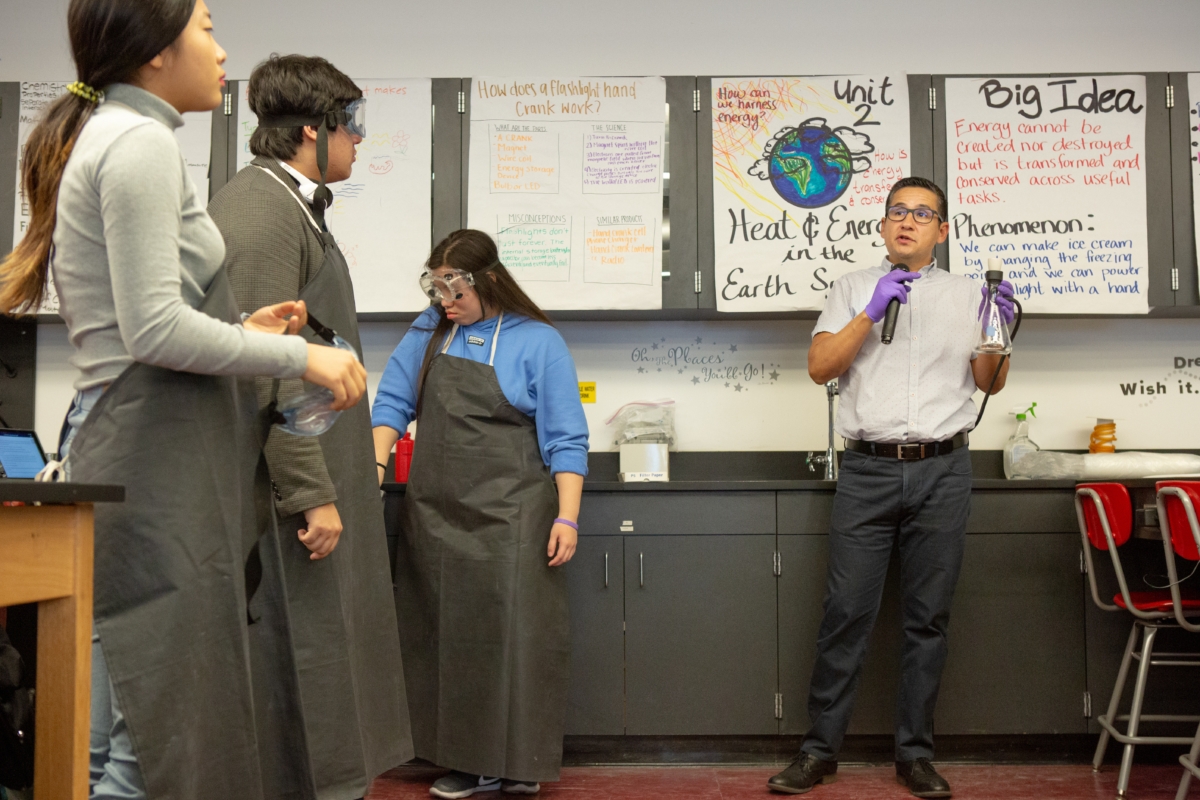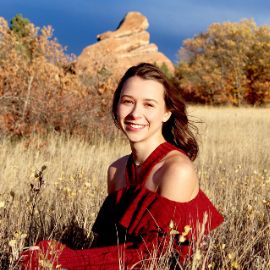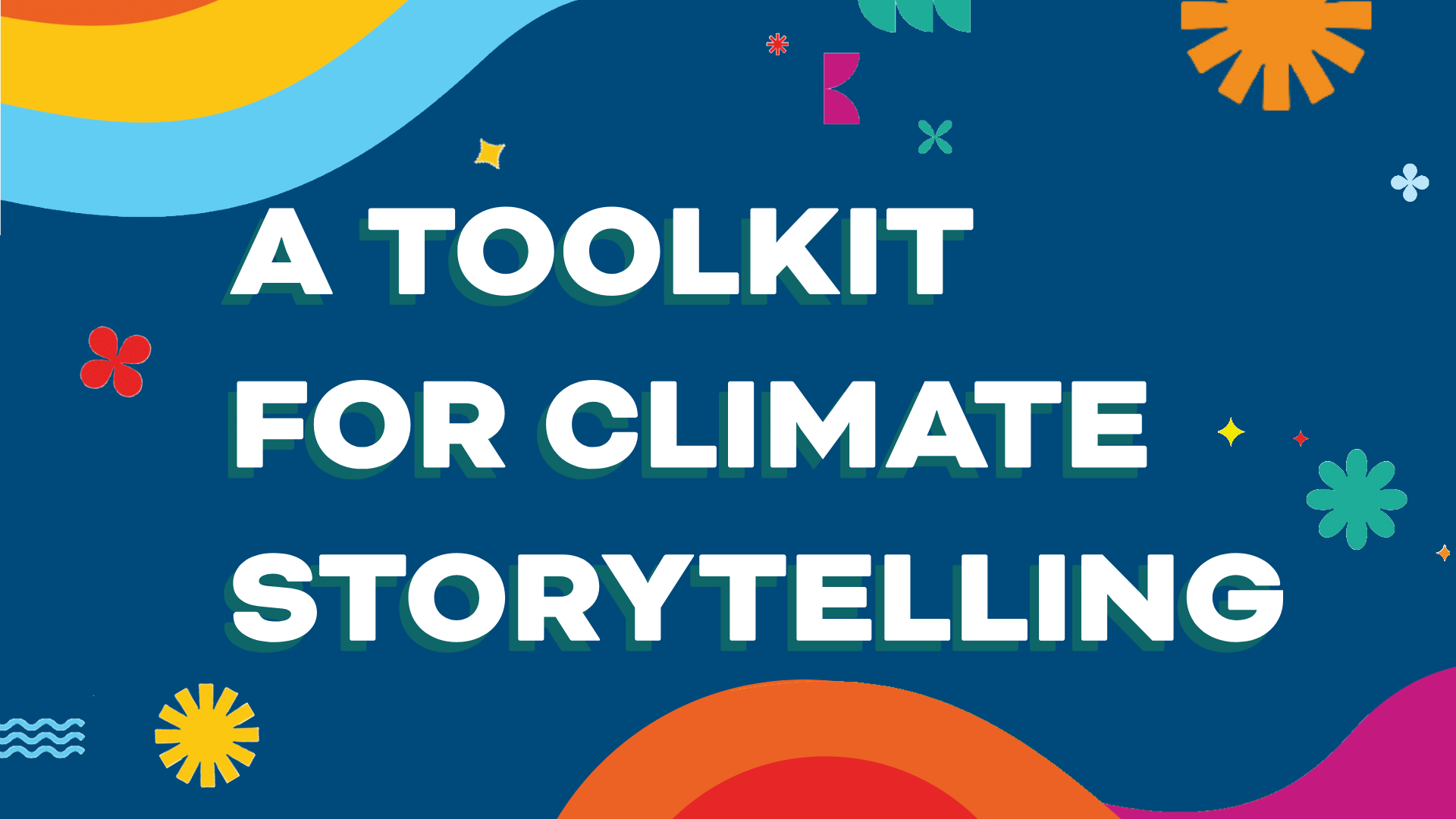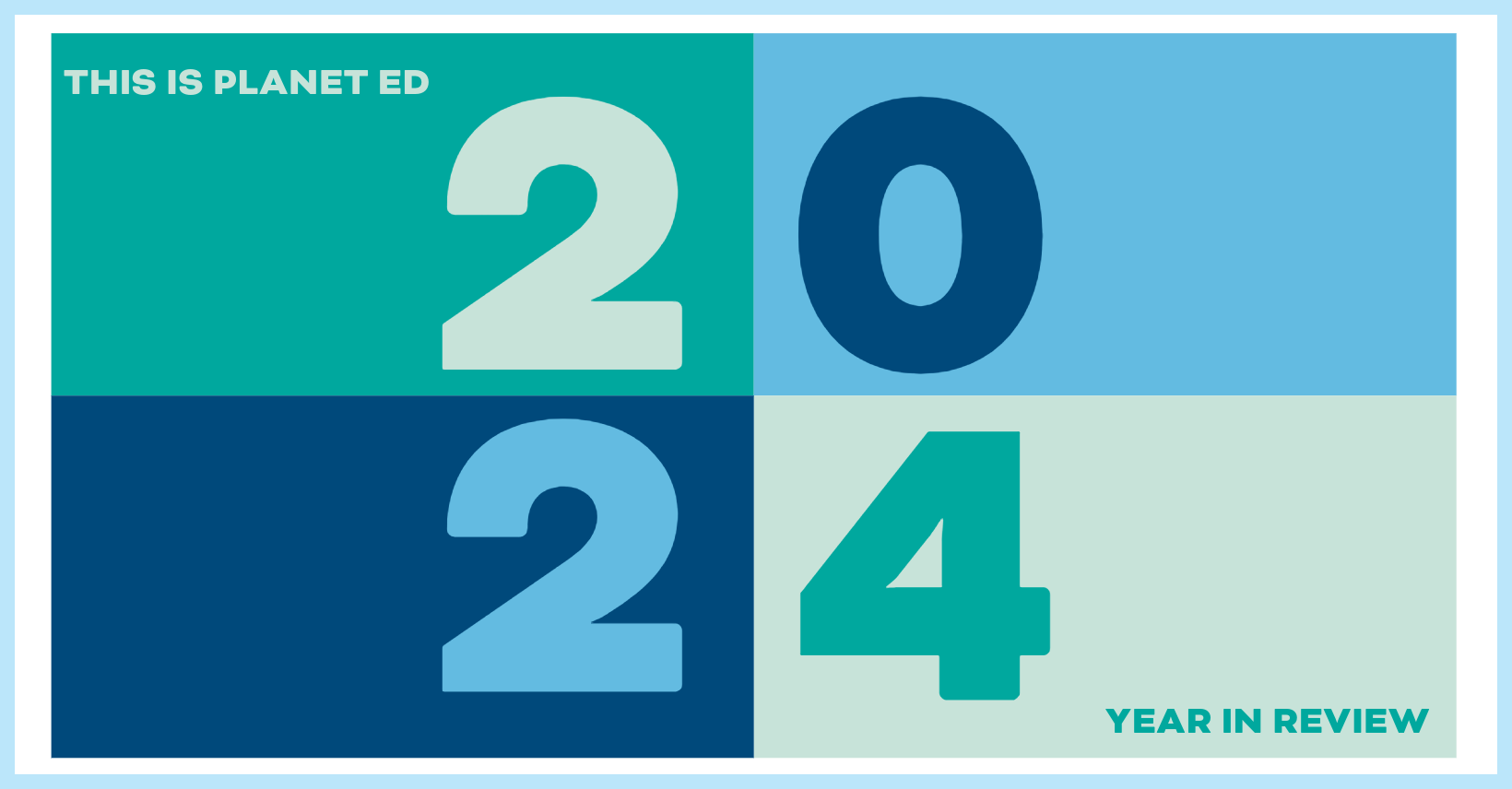Resources — Other Resources
Saving the Planet Must Include Rural America

Photo by Allison Shelley for American Education: Images of Teachers and Students in Action
I live in Larkspur, Colorado, a rural outset from the suburbs of Denver where I attend high school. I’ve participated in 4-H, helped run cattle and done more than my fair share of mucking stalls. I live in a region that celebrates fresh mountain water, gorgeous spans of open spaces and clean air. But I also live in a region where the impacts of climate change have been felt with increasing severity. Droughts last longer, fire seasons are becoming more severe and our cold winters are becoming warmer.
However, it’s in speaking to my nature-dependent peers that I feel least able to discuss climate change and its ramifications. Typical discussions about the topic of climate change with the friends I’ve made through 4-H or rodeos are hostile, if not outright dismissive. This disagreement is understandable when considering our varying educational experiences.
Most of the students in my community attend the rural school on the other side of town. Based on where my house is located, I attend a suburban school which provides a different educational opportunity. The rural school is focused on agriculture and offers courses like meat science aligned with the popularity of Future Farmers of America. Students attending this school are the next generation of American food scientists and agricultural experts, but their education is very different from mine.
In my suburban school, I have classes like AP Environmental Science and Earth science available to me. In these courses, we learn about climate change and discuss its implications. Meanwhile, the school of my peers does not require or promote these courses, discouraging students from learning about the resources needed for a safe and sustainable approach to agriculture.
Rural communities are more likely to be "dismissive” or “doubtful” when it comes to issues of climate change, a trend that holds not only for my area of Colorado but across the United States. The education standards and initiatives in these communities reflect those beliefs.
"I am a student in rural America who has benefited from attending a high school that teaches climate change in full, though I’ve been witness to others who do not benefit from this same privilege."
Furthermore, because of society’s pervasive tendency to restrict ourselves to homophilic interactions, interactions largely within groups of people we identify and agree with, individuals within this community are receiving little to no exposure to these issues. I am an exception. I am a student in rural America who has benefited from attending a high school that teaches climate change in full, though I’ve been witness to others who do not benefit from this same privilege.
We cannot save the planet without the hard work and support of every community. Agriculture, in particular, will be a critical sector. Currently, it represents about 10% of US emissions and the sector will be increasingly impacted by extreme weather. We need to ensure the rural communities that feed our country are a part of the work. In order for us to unite on this issue, education standards, including science standards, need to change.
Every state in America has different standards for K-12 schools. Recently, changes in American history standards have been growing in popularity as students demand more accurate representation of American history and the experience of Black, Indigenous and people of color.
However, changes in terms of science standards are much rarer. Most state offices of education do not expect their students to have more than a rudimentary understanding of the formation of the Earth, its basic properties, let alone climate change and its implications. Even in Colorado where mention of climate change is included in science standards, it does not mean that it is taught consistently or comprehensively across schools. Our earth science standards rarely change, even though Earth science, including our understanding of climate change, is constantly evolving.
"The issue of climate change will remain an incomplete conversation until it incorporates the voices of rural communities."
To empower youth, we need standards that more thoroughly include climate change across the curriculum, and we need to support all schools in teaching those standards. Currently, New Jersey is the only state to require schools to teach about climate change across the curriculum. Other states leave too much discretion to districts. According to an NPR poll, 80% of parents said they want climate change taught in school, but more than half of teachers say they don’t teach it. This is leading to a divide of not only political and social beliefs but an outright divide of knowledge as communities choose whether to teach or redact information about climate change. Yet, supporting standards that comprehensively include climate change can help narrow that divide.
The issue of climate change will remain an incomplete conversation until it incorporates the voices of rural communities. These rural communities are raising our steaks, tending to our crops, and literally putting food on our tables. The least we can do is to ensure they have the tools, knowledge, and resources to be sustainable as they do it.
The views expressed in this article are those of the author and do not necessarily reflect views of the Aspen Institute, K12 Climate Action, commission or coalition members, or organizations with which they are affiliated.


